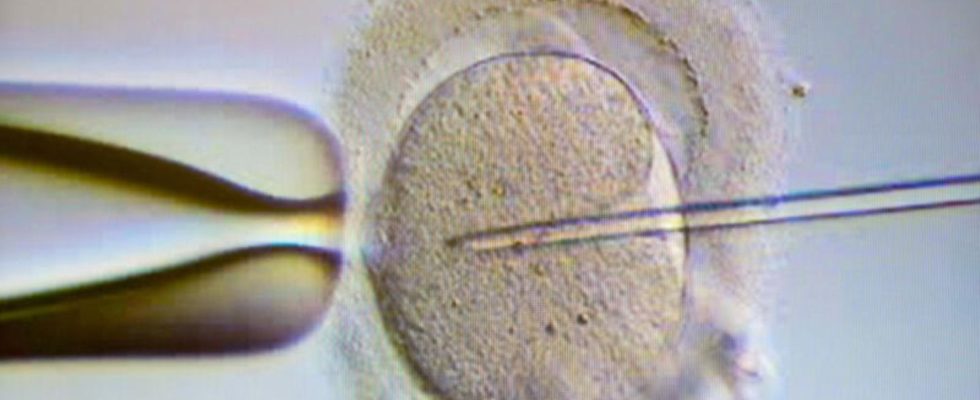Australia
Giving life after death? Court allows 62-year-old to take sperm from deceased husband
A sperm is injected into an egg cell (symbolic image)
© Klaus-Dietmar Gabbert / DPA
A woman in Australia desperately wants to have a child with her husband – even though he has already died. What sounds like an ethical dilemma has a tragic background.
An Australian court has made a legally and, above all, ethically difficult decision: a 62-year-old Australian woman is allowed to have sperm removed from her deceased husband. The sperm can be collected and stored, a judge in the Supreme Court of Western Australia ruled, according to court documents released on Wednesday.
The case sounds like an absurd scenario, but it has a tragic background.
A couple from Australia have already lost two adult children
In her ruling, the judge criticized the hesitant hospital. It was “disappointing” […] that an applicant has once again been forced to go to court in an urgent matter and in traumatic circumstances to obtain an order that […] could be issued in a quicker and more efficient manner,” she explained.
According to court documents, after their 31-year-old son’s fatal car accident in 2019, the couple began exploring whether they could father another child using their 61-year-old husband’s sperm and with the help of a surrogate mother. It wasn’t the first stroke of fate for the couple: six years earlier, their then 29-year-old daughter had drowned in a fishing accident.
Since the death of their children, the couple has talked about having children again. However, a fertility expert explained to the woman that she could not become pregnant herself due to her age.
Sperm collection permitted, fertilization prohibited
After her husband died suddenly on December 17 after 39 years of marriage, the woman asked a hospital to collect and store his sperm. Since the clinic did not initially take action, the 62-year-old applied to court for an urgent order. This was issued on December 21st, but has only now been published.
From a medical point of view, there is nothing wrong with using sperm for posthumous fertilization, explains Roger Hart, professor of reproductive medicine at the University of Western Australia, to the Australian broadcaster ABC. However, he sees “ethical challenges”.
However, the court ruling is only the first hurdle for the 62-year-old. Although the widow is now allowed to have her husband’s sperm removed, posthumous insemination is prohibited in Western Australia. Before a surrogate mother can be artificially inseminated, a separate court order must be obtained and the sperm must be transferred to another state where the procedure is permitted.
Sources: ABC; “The Guardian“; with AFP

